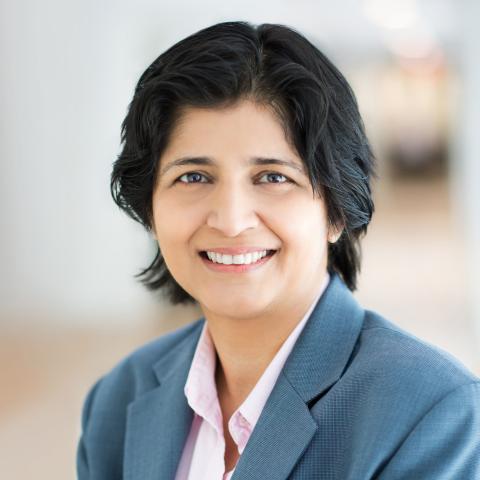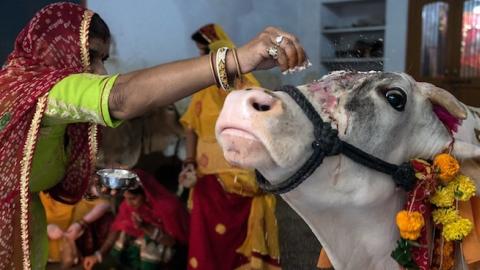However pious their intentions, religious vigilantes attacking humans to protect cows deemed sacred by Hindus are likely to hurt India's global stature. Racial attacks like the harassment of African students in Delhi will equally hamper India's quest for a seat at the global high table. India’s appeal to the developing world has always been based on its pluralism and inclusiveness as well as the success of its democracy. Recent developments, however, threaten that appeal.
The turn towards ‘enforcement’ of religion by self-appointed guardians of faith and the State’s unwillingness to act against them also carries economic risks. International investors would view India as a risky market if there is social tension and law and order is submissive to religious activists. A country where armed and violent vigilante gangs roam the streets imposing their own brand of social justice never augurs well for business and growth.
India's image in the global arena is hurt by the kind of vigilantism witnessed over the last three years. Hindus revere the Cow as ‘the mother’ but historically, Indians have been divided over whether eating the meat of cows is permissible or not. Lately, Gau rakshaks (cow protection squads) have reportedly lynched and killed Dalits (untouchables) and Muslims and raided their homes on suspicion of eating or possessing beef. Given Hinduism’s emphasis on respect for human life, killing humans ostensibly to protect cows is not really a religious undertaking.
Protecting cows is only one aspect of the new enforced religiosity. Streets in a number of northern Indian cities are rife with vigilante gangs forcibly intervening to stop inter-religious romance, what they describe as 'love jihad.' In addition to preventing Muslims from marrying Hindus, some gangs go farther in imposing their sexual mores on all young people. These groups describe themselves as 'anti-Romeo squads’ and in some states, like Uttar Pradesh, the police tends to support them instead of protecting their victims.
Not only have these groups created a law and order problem but they have also led to communal conflicts, riots and worsened societal relations. The groups most affected by the banning of beef, the shutting down of abattoirs and the 'protection of cows' are members of India’s Dalit and minority Muslim communities. Large members of these communities eke their livelihood through buying and selling of animals and their carcasses. Banning the consumption of beef, the slaughter of cattle and the closing of abattoirs is a direct attack on their right to life and livelihood. As the Allahabad High Court noted in a recent judgment, food choice is a right to life and no one, whether the state or a vigilante group, has the right to take that away from someone.
India has the world’s second largest Muslim population and for decades Indians proudly claimed that no Indian Muslim was part of any global jihadi organization. This changed after the 2002 Gujarat riots and now with the rise of ISIS. India is fortunate that radical Islam has lured few of its Muslims. An inclusive, democratic and open society where they could hope to rise to the top of their fields was the primary reason.
In this context, the rise of a chauvinist Hinduism, discrimination against minorities – primarily Christians and Muslims – attacks on churches, and mosques, attempts to ‘re-convert’ Christians and Muslims back to Hinduism, and rise of vigilante groups that attempt to impose their version of Hinduism does not bode well.
In every society, the majority is supposed to make the minority feel that they are part of the system. The Indian national movement created the idea of India as a multi-religious, multi-linguistic, secular, democratic and pluralistic society. If that hope fails amongst India’s minorities, India will have an impossible challenge on its hands.
There has also been a rise in racial attacks, both on Indians and foreigners. Indians from the northeastern region of India have faced an increasing number of attacks primarily on account of their racial difference with the rest of the Indian populace.
Racist attacks against your own countrymen should have no place in an open and inclusive society. Alienating your own countrymen, especially from a part of your country that has long faced insurgency and is critical for your national security, is not a policy for long-term prosperity.
India's stature globally has hinged on its soft power: its large diaspora, its development aid to other developing nations and of course Bollywood. Across most of the African continent, there is pride in India's rise: the rise of a fellow developing country and (in some cases) a fellow non-aligned movement member. Indian teachers, nurses and doctors created a groundswell of support for India. Large numbers of African students took advantage of the scholarships offered and the open Indian society to come and study and live in India.
This may change with the rising number of attacks in the last few years against Africans. For decades Indian diplomacy benefitted from positive perceptions amongst the populace across the African continent. If these perceptions about India change, New Delhi may no longer be able to count on the support of many old allies.
A democratic country like India with a diverse population and vast regional differences can grow only if everyone has a stake in the present and future. India is and will remain a Hindu-majority country but its ethos derives from a 5000 years old history where different religions, cultures, peoples and beliefs came together in the crucible that is India.
Hinduism’s greatest strength has been its openness, like a great tent that welcomes all. Religious vigilantism, forced conversion and killing people in the name of protecting the cow are not part of Sanatan Dharma. Freedom of choice, the right to question authority and believing all paths lead to God are.
Any attempts to gloss over or dismiss that history, to craft a new history that has no roots in the past will only cause irreparable harm. India’s inclusiveness over the centuries helped it become the great civilization that it is today. India’s minorities have been its strength and have contributed in every sphere of life. The new trend, of imposing a narrow vision of a Hindu India, is only likely to lose India friends and admirers around the world without necessarily making Indians any more Hindu than they already are.

















